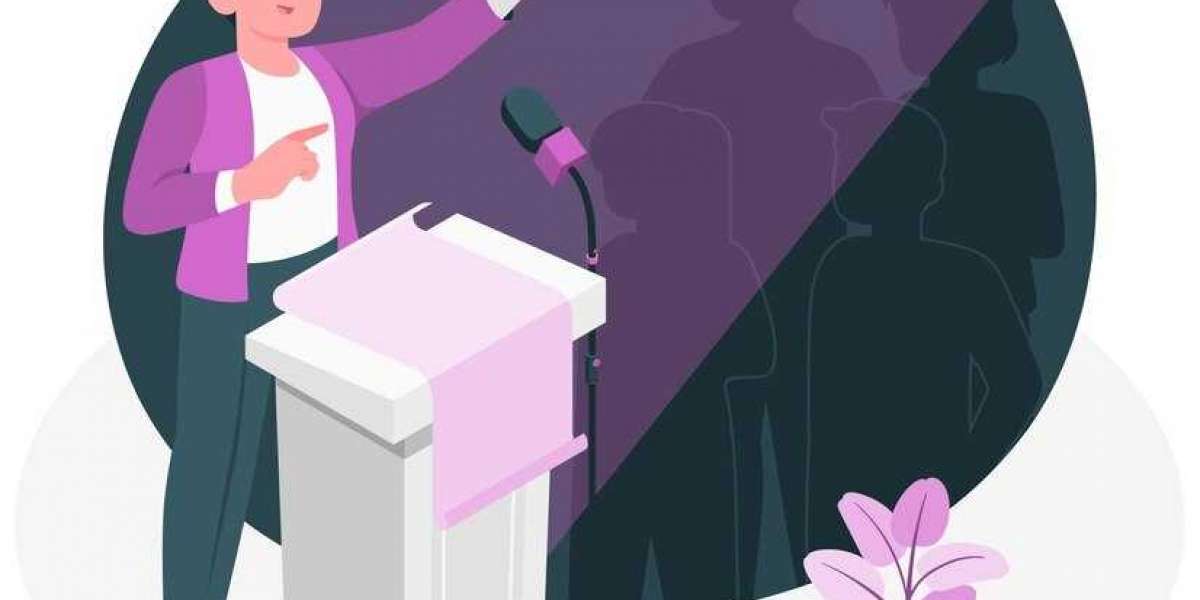Public Speaking Anxiety, often referred to as stage fright or glossophobia, is the fear or apprehension that some people experience when speaking in front of an audience. This anxiety can manifest as physical symptoms like a racing heart, sweating, or trembling, and it may also lead to mental and emotional distress, including fear of judgment, forgetting what to say, or a general unease about being in the spotlight.
Does public speaking anxiety go away?
Public speaking anxiety is a common fear, and for many people, it does not completely go away. However, it can be managed and reduced with time, practice, and effective strategies. With experience, individuals often become more comfortable and confident in public speaking situations. Techniques such as deep breathing, visualization, and cognitive reframing can help alleviate anxiety. Remember, it's a common feeling, and with the right strategies, it can be overcome.
Causes of Public Speaking Anxiety
If you're struggling with fear related to public speaking anxiety, consider seeking “Online counseling” for support and healing.
. Some common causes include:
- Fear of Judgment: Many individuals fear being evaluated or criticized by the audience. The concern about making mistakes or not meeting the audience's expectations can be a significant source of anxiety.
- Lack of Confidence: Inadequate self-confidence in one's speaking abilities can contribute to anxiety. If a person doesn't believe they can deliver an effective speech, they are more likely to experience anxiety.
- Inexperience: Lack of experience in public speaking can lead to anxiety. People who haven't had many opportunities to speak in public may feel more nervous when faced with such situations.
- Perceived Threat: Some individuals perceive public speaking as a threat to their self-image or reputation. This perceived threat can trigger anxiety.
- Fear of Mistakes: The fear of making mistakes or forgetting what to say during a speech can be a significant cause of anxiety. People worry about embarrassing themselves in front of the audience.
- Social Anxiety: Public Speaking Anxiety is often linked to social anxiety, a broader condition characterized by fear and discomfort in social situations.
- Perfectionism: Striving for perfection and setting unrealistically high standards for oneself can contribute to anxiety. Perfectionists may fear falling short of their own expectations.
- Past Negative Experiences: Previous negative experiences while speaking in public, such as forgetting lines or receiving criticism, can create a fear of repeating those experiences in the future.
- Physical Symptoms: The physical symptoms of anxiety, like a racing heart, sweating, or trembling, can become a source of further anxiety in a self-perpetuating cycle.
If your relationship is impacted by public speaking anxiety, it's a valid concern to explore “Marriage counselling” for support and resolution.
Public Speaking Anxiety Symptoms?
Certainly, here are ten common symptoms of public speaking anxiety:
- Rapid Heartbeat: An accelerated heart rate, often accompanied by palpitations or a pounding sensation in the chest.
- Shortness of Breath: Difficulty in breathing, leading to shallow or irregular breaths.
- Perspiration: Excessive perspiration, especially on the forehead, palms, or underarms.
- Trembling or Shaking: Involuntary trembling or shaking in the hands, legs, or voice.
- Nausea or Stomach Discomfort: Feelings of nausea, butterflies in the stomach, or gastrointestinal distress.
- Dry Mouth: A parched or dry sensation in the mouth, sometimes accompanied by difficulty in speaking.
- Dizziness or Lightheadedness: A feeling of lightheadedness or dizziness due to anxiety-induced physiological responses.
- Mind Going Blank: Cognitive symptoms may include difficulty concentrating, memory lapses, or a sudden inability to recall information.
- Negative Self-Talk: Intrusive and negative thoughts, self-doubt, and fear of judgment or criticism.
These symptoms can range in intensity from mild to severe and can significantly impact one's ability to communicate effectively in public speaking situations.
How to Overcome Public Speaking Anxiety
Overcoming public speaking anxiety takes time and practice, but it's entirely possible. Here are some effective strategies to help you manage and ultimately conquer your fear of speaking in public:
- The Secret is to Prepare: --- Make sure your speech or presentation is well-prepared. Gaining complete confidence in your subject matter might help.
- Practice, Practice, Practice: Rehearse your speech multiple times, ideally in front of a trusted friend or family member. This will enable you to feel more at ease when creating material.
- Visualize Success: Before your speech, imagine yourself giving a successful and confident presentation. Visualization can help reduce anxiety.
- Control Your Breathing: Deep, slow breaths can calm your nervous system. Practice deep breathing exercises to relax before and during your speech.
- Body Language Awareness: Maintain good posture, make eye contact with the audience, and use open and inviting body language. You can convey greater confidence by using these nonverbal clues.
- Manage Your Thoughts: Challenge negative self-talk and replace it with positive affirmations. Remind yourself what your advantages are.
- Start with Familiar Audiences: If possible, begin by speaking in front of friends or small, supportive groups. Ascend to bigger audiences bit by bit.
In conclusion, overcoming public speaking anxiety is an achievable goal with the right strategies and a commitment to practice. While it's natural to feel nervous before speaking in public, these feelings can be managed and even transformed into positive energy.



